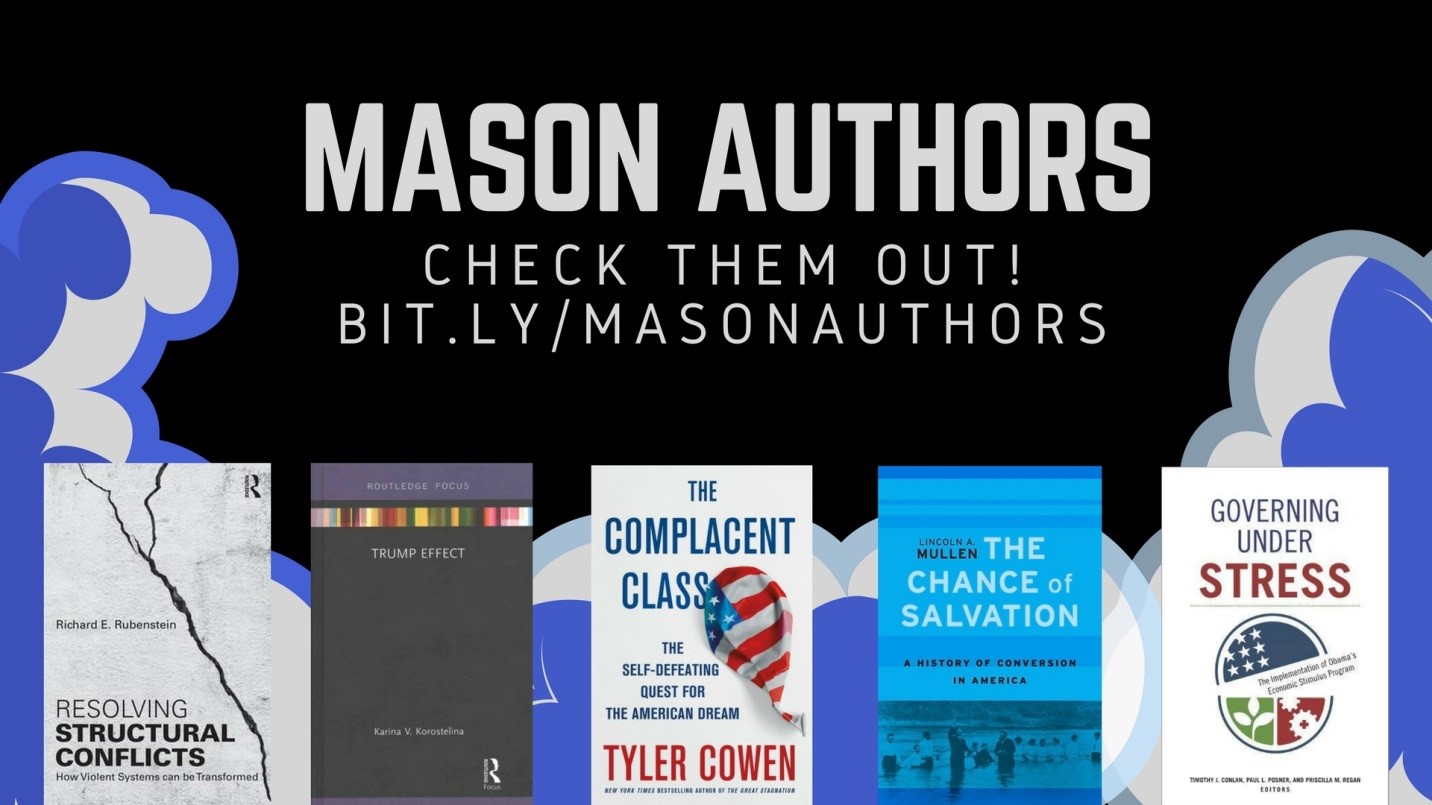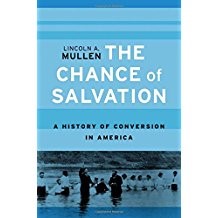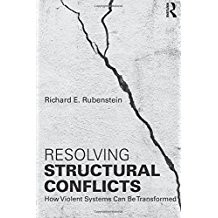 Five books to pick up on Authors’ Month
Five books to pick up on Authors’ Month
November, Authors’ Month, is the ideal time to celebrate the commuter’s companion and a well-thumbed fireplace snuggle buddy. The typical American reads four books each year, according to Pew Research, and 65 percent have read a print book in the last year.
Library-lovers, rejoice: University Libraries offers free access, wherever you are, to over 3 million books and e-books. This means the nostalgic smell of paper and ink isn’t going anywhere soon.
We want to support authors and promote literacy this month, so here are five books by Mason faculty/alumni authors to get you reading.
Mason Spirit features a full list of faculty and alumni authors with Q&A sections by select authors. We encourage you to read our Faculty Author Collection and tweet about what you read using #MasonAuthors.
 |
The Chance of Salvation: A History of Conversion in America Lincoln A. Mullen, assistant professor, History and Art HistoryThe Chance of Salvation (Harvard University Press, August 2017) focuses on the issue of religious conversion among young people in America and their willingness to change faiths. Mullen explores various historical constructs that formed the American idea that religion is a matter of personal choice rather than a familial expectation, including the diversity of values that each religion present in the United States incorporates into practice. |
 |
Trump Effect Karina V. Korostelina, professor, School for Conflict Analysis and ResolutionIn Trump Effect (Routledge, October 2016) Korostelina explains how the support for Trump among the American general public is based on three complementary pillars: 1) Trump champions a specific conception of American national identity that empowers his supporters, 2) Trump’s leadership has, to an extent, been crafted from his ability to recognize where and with whom he can get the most return on his investment, and 3) Trump challenges the existing political balance of power within the United States and globally. |
 |
Governing Under Stress: The Implementation of Obama’s Economic Stimulus Program Timothy J. Conlan, Priscilla M. Regan, and Paul L. Posner, Schar School of Policy and GovernmentThis book (Georgetown University Press, January 2017) presents perspectives on the implementation of the American Recovery and Reinvestment Act, its management within all levels of government, and its portrayals in the media and public perception. Contributors draw upon more than 200 interviews and nationwide field research to present insights into the challenges facing public policy and management. |
 |
Resolving Structural Conflicts: How Violent Systems Can Be Transformed Richard E. Rubenstein, University Professor, School for Conflict Analysis and ResolutionResolving Structural Conflicts (Routledge, January 2017) analyzes how certain types of social systems generate violent conflict and discusses how these systems can be transformed to create the conditions for positive peace. The book addresses a key issue in the field of conflict studies: what to do about violent conflicts that are not the results of misunderstanding, prejudice, or malice, but the products of a social system that generates violent conflict as part of its normal operations. |
 |
The Complacent Class: The Self-Defeating Quest for the American Dream Tyler Cowen, BS Economics ’83, Holbert L. Harris Chair of Economics and General Director of the Mercatus CenterAmericans’ restlessness and willingness to move, take risks, and adapt to change has produced a dynamic economy and a tradition of innovation. But, according to Cowen, Americans today have broken from this tradition―we’re working harder than ever to avoid change. The Complacent Class (St. Martin’s Press, February 2017) argues this cannot go on forever. |
